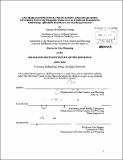| dc.contributor.advisor | James Phillip Thompson. | en_US |
| dc.contributor.author | Serang, Farzana Mohamedali | en_US |
| dc.contributor.other | Massachusetts Institute of Technology. Dept. of Urban Studies and Planning. | en_US |
| dc.coverage.spatial | n-us-oh | en_US |
| dc.date.accessioned | 2012-10-10T15:48:40Z | |
| dc.date.available | 2012-10-10T15:48:40Z | |
| dc.date.issued | 2012 | en_US |
| dc.identifier.uri | http://hdl.handle.net/1721.1/73821 | |
| dc.description | Thesis (M.C.P.)--Massachusetts Institute of Technology, Dept. of Urban Studies and Planning, 2012. | en_US |
| dc.description | "June, 2012." Cataloged from PDF version of thesis. | en_US |
| dc.description | Includes bibliographical references (p. 86-91). | en_US |
| dc.description.abstract | Democratic wealth generation is an important part of future community and economic development strategies. It is built on the notion that all members of society, especially low-income communities, communities of color, and the formerly incarcerated should have equal access to job opportunities in order to create a more democratic and economically stable society. As cities struggle through population decline, changing industries, high vacancies, and a deteriorating economic base, models for democratic wealth generation become instrumental for revitalization. Within these cities, anchor institutions play a pivotal role in shaping the landscape of career opportunities and regional development. One such example, in Cleveland, Ohio will be the focus of this Masters Thesis. I will examine Vision 2010, a diversity-driven procurement strategy enacted during the construction of University Hospitals' five new facilities to illustrate the strengths, challenges, and lessons of anchor institutions choosing to act regionally and prioritizing inclusion and innovation. A thorough analysis of the case model will provide evidence for a theory of practice for anchor institutions and regions throughout the United States, especially as it relates to new 990 reporting requirements as part of the Affordable Healthcare Act (ACA). | en_US |
| dc.description.statementofresponsibility | by Farzana Mohamedali Serang. | en_US |
| dc.format.extent | 94 p. | en_US |
| dc.language.iso | eng | en_US |
| dc.publisher | Massachusetts Institute of Technology | en_US |
| dc.rights | M.I.T. theses are protected by
copyright. They may be viewed from this source for any purpose, but
reproduction or distribution in any format is prohibited without written
permission. See provided URL for inquiries about permission. | en_US |
| dc.rights.uri | http://dspace.mit.edu/handle/1721.1/7582 | en_US |
| dc.subject | Urban Studies and Planning. | en_US |
| dc.title | Anchor institutions, innovation, and inclusion : Cleveland's University Hospitals Vision 2010 as a national example for addressing Affordable Healtbcare Act 990 requirements | en_US |
| dc.title.alternative | Cleveland's University Hospitals Vision 2010 as a national example for addressing Affordable Healtbcare Act 990 requirements | en_US |
| dc.type | Thesis | en_US |
| dc.description.degree | M.C.P. | en_US |
| dc.contributor.department | Massachusetts Institute of Technology. Department of Urban Studies and Planning | |
| dc.identifier.oclc | 811344567 | en_US |
